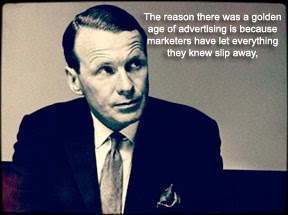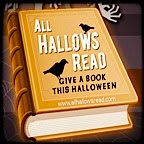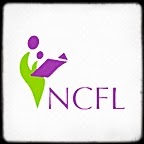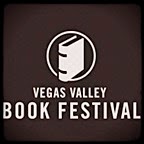It's no secret that actions rule marketing. It was the marketing answer for online measurement, one underscored by any number of antecdotes — click it to win it and jab, jab, jab, right hook among them.
There is nothing wrong with actions, but sometimes it can short sell the impact of social media just like it used to short sell the impact of good advertising. In the wrong hands, it can undermine the customer by giving them less credit than a doorknob. They're not stupid or sales marks.
Did anybody read what Graham Hill noted in his column? A one percent response rate is now acceptable in some marketing channels. One percent? A few years ago, the only thing a one percent return in direct mail meant was that you were going to be fired. Industry standard was four percent.
Four percent was remarkably low too. Double-digit returns was one of the reasons direct mail became part of my portfolio. My response rates were higher because I didn't believe the customer was stupid.
In essence, the most brilliant move among modern marketers wasn't in developing great campaigns. It was making themselves superstars by lowering the bar to its most banal point in history, and then convincing their clients that the only way to make more revenue was more frequency and reach.
David Ogilvy said it: Consumers aren't morons. She is your wife. Or friend. Or neighbor.
The idea was introduced to me by Borne Morris, who joined Ogilvy & Mather in 1960 as a writer. She worked there until eventually becoming head of Ogilvy & Mather in Los Angeles. Some agency accounts included Mattel, Columbia Pictures, General Foods, and Baskin-Robbins.
Among all of the bits and pieces of knowledge I've collected, the Ogilvy quote remains one of my favorites. In fact, that is why I elected to paraphrase it in the subhead. The concept behind what he said has outgrown its original intent. It isn't about protecting consumers from being maligned as dunces. It's about something much bigger.
When you remember that the consumer is your wife or friend or neighbor, you are also advocating that they aren't looked at as "them" but rather someone close to you. It makes you one of them.
You can research, plan, and think but social will be what it wants to be.
The real benefit of being one with the consumer as opposed to the person trying to reel them in for a quick fix is that it addresses what ought to be the golden rule of social media. That rule is simple.
"Any social campaign is going to be what it wants to be. You have to be ready to go with it, follow it where it goes, and deal with whatever it becomes. If you do, brilliant. If not, you're a blowhard."
I was reminded of this over the weekend while managing the realtime social for the Vegas Valley Book Festival. I had some hard plans for what needed to be done on the day of the event. I spent several weeks considering how to best cover it live. All that was tossed out when I caught a cold.
There are more than 100 panels and lectures and presentations (many occurring simultaneously), live social coverage had been bandied about for a month, and now you're too sick to attend. What do you do? Since sending someone else to cover the event wasn't an option, I was straight up with them.
I told them that I was too sick to attend and needed an assist, making my base camp about a half-hour away at my home office. Without any hesitation, one of the young adult authors and a local reporter jumped in to help direct the stream of participant-generated content, using a designated hashtag.
By 10 a.m., the social stream across Facebook, Twitter, Vine, Instagram, and other networks became too big to retweet and recapture with the hashtag. There was even one hour when the Vegas Valley Book Festival account was tossed in Twitter jail. It made attendees even more excited to share their experiences at the event. Insights suggest the event's online reach outpaced last year tenfold.
Every experience has three parts. Most marketers only worry about the first.
The event might be over, but the social work needs to continue. Many attendees already know that the event will be followed up with ongoing exhibits through November, permanent author lists on Twitter, event photo boards on Pinterest, and other post-event offerings. All of it is a great way to prolong the good feeling that so many of them experienced during the event.
Not many marketers consider channeling additional effort into post-event occurrences, especially when there is no "sale" incentive. But since my firm has been working on social as a community service and extension of my position with AIGA Las Vegas, no one had to approve anything. I think post-event communication it is a critical component of any outreach.
This runs contrary to most marketing plans, which tend to put all the emphasis on pre-event activities in an attempt to build actions and concern themselves very little with the purchase experience or customer retention. In other words, marketing is overly concerned with pushing people to the cash register and not concerned enough with the experience or joy of ownership (tangible purchases or intangible memories) that eventually pays bigger dividends in brand equity.
If they did realize it, then these marketers would stop worrying about trying to make people do, do, do until it's done. Why? Real marketing realizes that we don't want people to complete a transaction. We want to leave the ticket open so our customers have a longer lifecycle than direct response action.
For the Vegas Valley Book Festival, this means prolonging the great experience people had at the event and having a better opportunity to outline next year's event as new authors are lined up. It doesn't mean trying to make them like, share, promote, or otherwise participate in empty engagement on a social network. Make sense? I hope so. Nobody needs to learn the hard way.
What do you think? Are there any companies out there proving themselves to be effective at creating a viable customer lifecycle? I know about a few, but would love to read some other thoughts too.
There is nothing wrong with actions, but sometimes it can short sell the impact of social media just like it used to short sell the impact of good advertising. In the wrong hands, it can undermine the customer by giving them less credit than a doorknob. They're not stupid or sales marks.
Did anybody read what Graham Hill noted in his column? A one percent response rate is now acceptable in some marketing channels. One percent? A few years ago, the only thing a one percent return in direct mail meant was that you were going to be fired. Industry standard was four percent.
Four percent was remarkably low too. Double-digit returns was one of the reasons direct mail became part of my portfolio. My response rates were higher because I didn't believe the customer was stupid.
In essence, the most brilliant move among modern marketers wasn't in developing great campaigns. It was making themselves superstars by lowering the bar to its most banal point in history, and then convincing their clients that the only way to make more revenue was more frequency and reach.
David Ogilvy said it: Consumers aren't morons. She is your wife. Or friend. Or neighbor.
The idea was introduced to me by Borne Morris, who joined Ogilvy & Mather in 1960 as a writer. She worked there until eventually becoming head of Ogilvy & Mather in Los Angeles. Some agency accounts included Mattel, Columbia Pictures, General Foods, and Baskin-Robbins.
Among all of the bits and pieces of knowledge I've collected, the Ogilvy quote remains one of my favorites. In fact, that is why I elected to paraphrase it in the subhead. The concept behind what he said has outgrown its original intent. It isn't about protecting consumers from being maligned as dunces. It's about something much bigger.
When you remember that the consumer is your wife or friend or neighbor, you are also advocating that they aren't looked at as "them" but rather someone close to you. It makes you one of them.
You can research, plan, and think but social will be what it wants to be.
The real benefit of being one with the consumer as opposed to the person trying to reel them in for a quick fix is that it addresses what ought to be the golden rule of social media. That rule is simple.
"Any social campaign is going to be what it wants to be. You have to be ready to go with it, follow it where it goes, and deal with whatever it becomes. If you do, brilliant. If not, you're a blowhard."
I was reminded of this over the weekend while managing the realtime social for the Vegas Valley Book Festival. I had some hard plans for what needed to be done on the day of the event. I spent several weeks considering how to best cover it live. All that was tossed out when I caught a cold.
There are more than 100 panels and lectures and presentations (many occurring simultaneously), live social coverage had been bandied about for a month, and now you're too sick to attend. What do you do? Since sending someone else to cover the event wasn't an option, I was straight up with them.
I told them that I was too sick to attend and needed an assist, making my base camp about a half-hour away at my home office. Without any hesitation, one of the young adult authors and a local reporter jumped in to help direct the stream of participant-generated content, using a designated hashtag.
By 10 a.m., the social stream across Facebook, Twitter, Vine, Instagram, and other networks became too big to retweet and recapture with the hashtag. There was even one hour when the Vegas Valley Book Festival account was tossed in Twitter jail. It made attendees even more excited to share their experiences at the event. Insights suggest the event's online reach outpaced last year tenfold.
Every experience has three parts. Most marketers only worry about the first.
The event might be over, but the social work needs to continue. Many attendees already know that the event will be followed up with ongoing exhibits through November, permanent author lists on Twitter, event photo boards on Pinterest, and other post-event offerings. All of it is a great way to prolong the good feeling that so many of them experienced during the event.
Not many marketers consider channeling additional effort into post-event occurrences, especially when there is no "sale" incentive. But since my firm has been working on social as a community service and extension of my position with AIGA Las Vegas, no one had to approve anything. I think post-event communication it is a critical component of any outreach.
If they did realize it, then these marketers would stop worrying about trying to make people do, do, do until it's done. Why? Real marketing realizes that we don't want people to complete a transaction. We want to leave the ticket open so our customers have a longer lifecycle than direct response action.
For the Vegas Valley Book Festival, this means prolonging the great experience people had at the event and having a better opportunity to outline next year's event as new authors are lined up. It doesn't mean trying to make them like, share, promote, or otherwise participate in empty engagement on a social network. Make sense? I hope so. Nobody needs to learn the hard way.
What do you think? Are there any companies out there proving themselves to be effective at creating a viable customer lifecycle? I know about a few, but would love to read some other thoughts too.






















